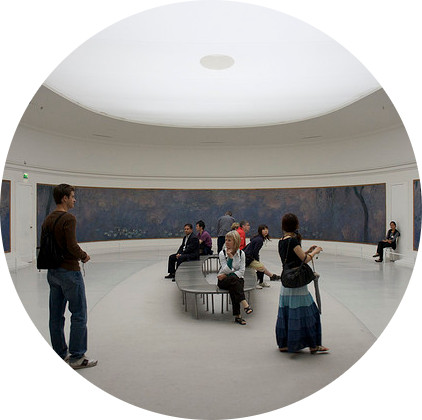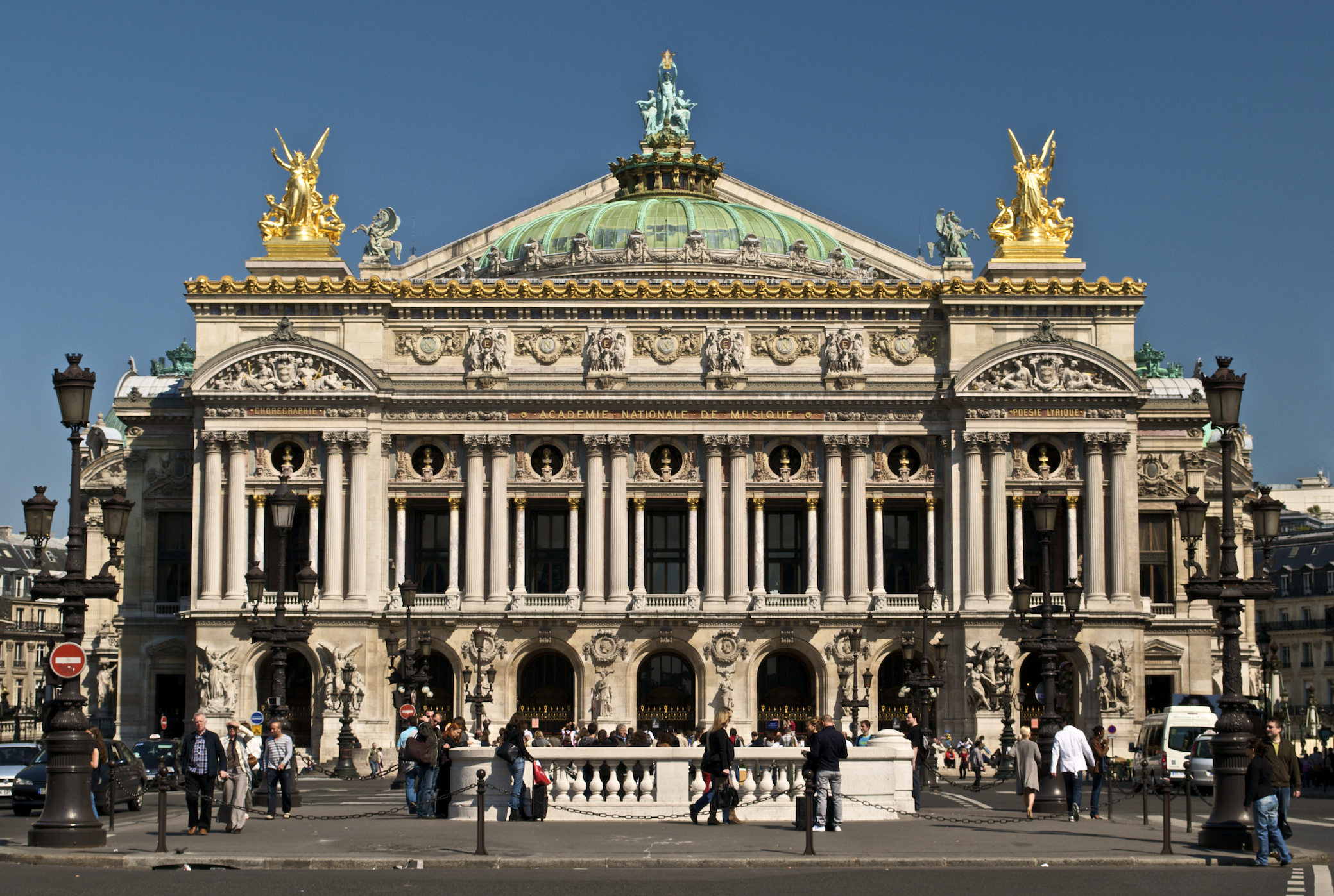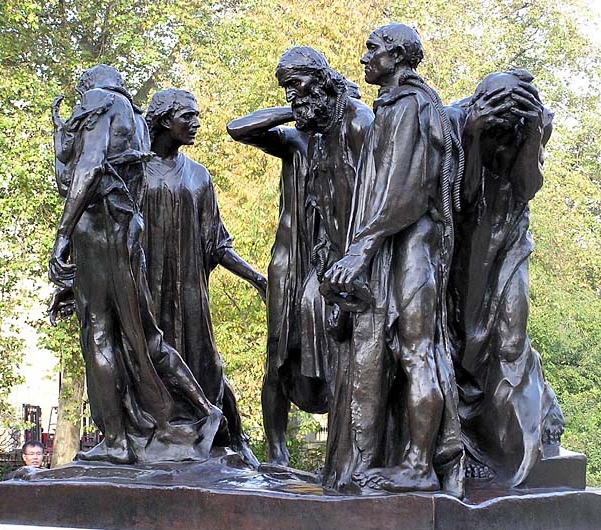The Arts in France; art for art’s sake?
 So often when we think of France we think of the Arts – the history, the architecture, the music, the sculpture, the art. For us Francophiles, France’s great appreciation for all things artistic is one of the glorious enchantments of French culture.
So often when we think of France we think of the Arts – the history, the architecture, the music, the sculpture, the art. For us Francophiles, France’s great appreciation for all things artistic is one of the glorious enchantments of French culture.
Tourism in France is very much centred on art, architecture and history. En fait in 2010 alone, French museums had more than 26 million visitors and the numbers have only grown every year since then.
Mais in 2012, the French government curtailed their support for the Arts due to new austerity measures. The Arts form such an integral part of the French cultural identity that these cuts jeopardised the very soul of French society.
Two years on, the question arises: have the Arts in France suffered? And how exactly does the French government’s support of the Arts, or lack thereof, measure up against Anglophone countries?
The unique approach to the Arts in France
In 1993, France introduced l’exception culturelle, a concept that protects cultural ventures in France by treating them as non-commercial goods. The purpose of cultural exception was to recognise that a State has a responsibility to protect and promote art within the nation.
As such, protectionist measures were introduced for French art. These measures prioritise French art over foreign works, as well as specifically supporting artists who struggle to make ends meet. For this reason, and to the delight of us Francophiles, the French music and film industry still dominate in France while its European counterparts are flooded with foreign music and Hollywood films.
Austerity impacts the cultural quarter
Interestingly, post-GFC the French have begun to spend less on holidays but more on the arts, with visits to the theatre, opera and cinema reaching new heights. Despite this, in the last four years the Arts in France have suffered major blows, with the loss of the government support they have come to rely on. With budget cuts to regional and local administration, provincial museums – the rough-cut gems of the French art world – are suffering.
The French art world has been warning of the danger for years. Christophe Vital, head of the curators’ association in France, spoke of the problem in 2011.
“There’s a huge gap between Paris and the provinces, between big and small museums,” he said, “But that doesn’t mean the big establishments don’t have problems too .”
Although former president Sarkozy was often criticized as being culturally inept, current president Francois Hollande’s government has been the one to deliver blows to the art world. With a 2.3% drop in the cultural budget of 2013, Hollande’s changes prompted protests and strikes across France as the public revolted.
Just recently, the Avignon Festival has been threatened by striking artists. France’s renowned theatre festival has recently decided to go ahead despite the striking performers. The artists are striking about the exact issue outlined above – cuts to their unemployment government support payments between commissions or work. They are mostly worried about the long term effects this will have on the Arts in France; with not enough money, fewer and fewer artists will be able to follow their passions.
On Tuesday 1 July the festival workers, ticket sellers, and other staff voted to go ahead with the festival in spite of the strikes.
 France vs. the World
France vs. the World
Although the French Ministry of Culture received a reduced budget in 2013, this still outstrips many countries. With close to 7.4 billion Euros ($10 billion USD) dedicated to the department, France has come out better off than other nations after the worldwide austerity measures of the last few years.
In Australia, the Arts are well supported and funded with around $7 billion USD dedicated every year. With a comparatively small population, this works out at just under $350 USD per person.
In comparison, the UK government has suffered much criticism for funnelling the majority of Arts funding into London. In London, funding per person amounts to $269 USD, grossly more than the rest of the UK where funding amounts to $76.64 USD per person.
The United States is a whole different ball game where much of the Arts world relies on private support rather than public. However with the percentage of private investors dropping by 9% over the past few years and no State increase, the federally allocated $158 million is starting to strain the Arts in the States.
Comparatively, it seems as though France is doing well.
The future of the Arts
As yet, there has been no clear evidence of a dire situation. It is worrying for the future of the Arts however, if the French State continues to reduce funding.
As lovers of French art, it seems to us at MyFrenchLife™ that we have an equal responsibility for standing by French cultural ventures. It is our duty then to watch French films, listen to French music and read French literature!
So spread your love the next time you are in France by visiting those smaller galleries and museums as well as the Louvre. Go to the theatre, opera, ballet and cinema as much as possible – as a matter of principle of course…
What do you think about France’s cultural identity? Do you think that the Arts should be further supported by the French government? Please share your comments below or interact with us on social media.
Image credits1. Musée de l’Orangerie by Paulo Vasta via Flickr
2. Louvre queue by Inge Knoff via Flickr
3. Palais Garnier via Wikipedia
4. August Rodin’s Les Bourgeois de Calais via Wikipedia
5. Lorette with Turban, Yellow Jacket by Henri Matisse by Cliff via Flickr











Always interesting to contrast different countries and how much they prioritise different sectors!
Having private investors (a la USA) sounds great until you think about it and realise that’s when the success of an artist is dictated by who they know, not how good their art is!
So true Ellen, it’s so sad when amazing artists are ignored because they don’t mix in the right circles. But it’s great to see that there are government grants out there to help struggling artists who aren’t already known of in those art circles.
This is a very interesting question. Obviously the Arts mean so much to France’s national identity, and it’s hugely important their tourism industry… but France also has other issues, such as unemployment and poverty. I can understand why people might feel that the Arts should take a backseat while other parts of the coountry are in desperate need of support.
This is true Elise but the problem is that the government hasn’t exactly followed through with this logic. Instead, they have cut some of the Arts budget but with those savings haven’t funneled it into attacking social justice issues like the poverty and extreme homelessness in France. So although I see your argument here, this money isn’t being used to tackle France’s other major social problems (except in the rather unsuccessful manner the Ayrault government has tried to bring down high figures of youth unemployment).
From a social perspective, I think the most important aspect of the Arts (over the tourism point) is the fact that they promote social cohesion and they help people to understand where they come from. The arts are really what weaves the fabric of our societies together and so I think it is very important to promote support of the arts without thinking that this support is taken at the expense of the social problems in France (as economically speaking, it hasn’t proved to at all).
Fantastic points Sahara, you clearly have a much better grasp on this issue than I do 😉 I agree that the Arts perform an important function as the ‘glue’ of society, and we can’t forget that… but I also think that when someone has been evicted from their flat and is eating from bins and living in a cardboard box, they’d be much less inclined to put such a high value on independent theater and hand made shoes!
I’m certainly not disagreeing with you here and I feel like I’m being staunch and conservative haha. But as much as I appreciate art for art’s sake and understand the value of the things that bring us together, I do feel that the security and wellbeing of the people should be a primary concern over their intellectual enlightenment. Sad but true 🙁